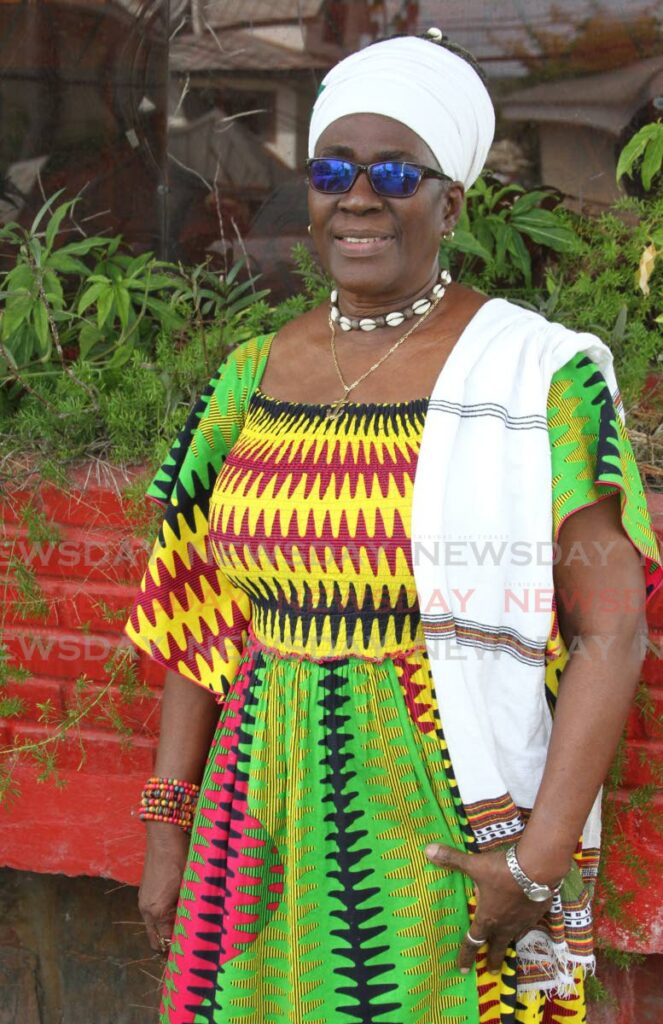Emancipation celebrations even more important in digital age

Emancipation Support Committee of Trinidad and Tobago (ESCTT) executive chair Zakiya Uzoma Wadada believes the commemoration of Emancipation is even more important now, especially in the rapidly moving digital age.
The committee launched its Pan African Festival TT in May, which included a lecture series, a fashion show and the annual Emancipation Village, which started on July 28 and ends on August 1.
It was important for African-descended people to know their history so they were not doomed to repeat it and be aware as they navigated new societal developments like artificial intelligence (AI), she said. This was the importance of the Emancipation commemoration.
“We are not just fighting enslavement, we are fighting the continued institutionalised discrimination,”
She added that the emancipation process was an ongoing one and the world was still controlled by white supremacists who “still feel they can determine the space and opportunities for African and African-descended people.”
Wadada cited Trinidadian criminologist and AI ethicist Renee Cummings for her work in examining discrimination in the development of AI.
“Even as they develop AI, our African people continue to be at risk. Therefore, every time the world develops we have to be paying attention.
Societies could run into difficulties if organisations such as the committee were not paying attention and watching happenings closely.
“We have to be ever vigilant.”
Institutional discrimination was a very real problem and that was why the International Decade for People of African Descent was put in place, she said.
Many issues still plagued African-descended people around the world.
She said the committee understood that in the current geopolitical environment – of democracy versus autocracy and the re-emergence of white supremacy alongside rising African consciousness – it was important that African-descended people knew and understood their history.
“This reconnection with ourselves has been the aim of the festival for all of the years….”
The minerals required to transport the world into the hi-tech AI era were on the African continent, she said. Continuing the observance of Emancipation was so important, “for the transformation of TT and the equilibrium of the earth.
“Africans have to reconnect with themselves so we can appreciate the beauty and power of ourselves so that if we are all able to do it and totally, eventually free ourselves of the effects, trauma and some of the remaining mantles (of slavery)…”
She said people had not fully dismantled from the enslavement experience.
“The enslavement experience of Africans lasted 400-500 years: we are talking centuries. For centuries, the enslavement of one people by the other was considered legal. This was a legal, economic system that everybody had to accept and participate in, and we are only 185 years emancipated.
“How do you emerge out of an experience like that? How much time does it really take for us to fully emerge out of that? We are emancipated less than half the time we were enslaved.”
She said African-descended people needed time to heal, to reconnect and to re-empower themselves, their societies and the world.Wadada added that it was important to create balance in the re-framing world. One group always felt greater than another with imbalance and, in order to create a peaceful world, change was needed.
“Africans never left their homes and went anywhere to try to conquer anybody
“Imbalance will always create the kind of environment in which we live and it will happen in very society,” she said.
Equity was needed in societies where everyone felt they belonged, felt that what existed in that space belonged to them and so they had to preserve and care for it, Wadada added.
Emancipation celebrations in TT included the visit of Asantehene Otumfuo Osei Tutu II, the ceremonial ruler of the Ashanti people in Ghana, who arrived on July 30 and leaves on August 6.

Comments
"Emancipation celebrations even more important in digital age"